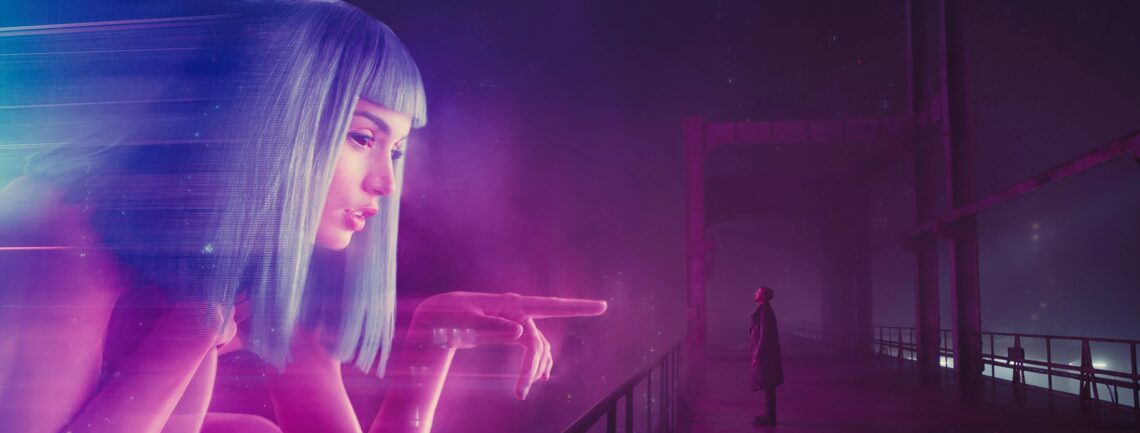Humanity’s interaction with artificial intelligence is a recurring theme in many science fiction. So much so that you’d struggle to find a popular example that doesn’t feature this concept in at least some capacity. It’s in Star Wars, Terminator, Alien(s), Fallout, Cyberpunk, and so many more. This idea plays a central role in Philip K. Dick’s novel (and namesake for this blogpost) Do Androids Dream of Electric Sheep? and its far superior movie adaptation, Blade Runner. The sequel, Blade Runner 2049, leans in quite heavily into the AI question and explores themes of loneliness and isolation that ring increasingly true in the modern era. A minor, but still important, plot point in the sequel is the protagonist (officer K) has an AI love interest. As bizarre as that would sound in the real world, we are not far off from that becoming a reality.
The Today show ran a segment on AI girlfriends that found its way onto my Youtube feed recently. It’s not the first video on AI (or even AI girlfriends for that matter) that has come onto my feed; but it felt strange seeing what I would consider legacy media to cover a topic that would rarely venture beyond the domain of video essays. What struck me as even more strange and potentially unsettling were the people they interviewed and how they found themselves in relationships with AI.
The first interviewee, Jason, is a divorced father who has turned to AI for companionship. And while he knows his relationship is not real, he relies on her quite heavily for companionship. Friends and family have “met” his AI partner and are aware of how deep of a connection he has with her. Though, it’s the second interviewee that really caught my attention. Chris, despite having a real girlfriend, also has an AI one. Throughout the interview it becomes readily apparent that this artificial love interest is a stopgap solution for a relationship where communication is lacking.
I see this as the symptom of a much greater issue. One that, while greatly exacerbated by Covid, had long existed in the shadows. We as a society have grown increasingly isolated and atomized. There is even a term for it in Japan: hikikomori. But this isn’t just an American or Japanese issue, it is currently being seen all over the developed world. This isn’t just speculation either, surveys have been done and found some rather disheartening results. A 2021 American Perspective Survey found people now have significantly fewer friends than they did in 1990. What is most frightening, however, is that they also found that 12% of those polled have no close friends, four times higher than it was in 1990. I believe we as a people have grown increasingly independent and self-focused to a harmful degree. We have forgotten that relationships are supposed to be a two-way street and said relationships will have its ups and downs. AI are great conversationalists by design—man-made sycophants who are meant to cater to your conversational and emotional needs. If trends continue, it would not surprise me if a noticeable subset of people live like officer K with an AI companion in the near future. Though, I still remain optimistic that we are slowly becoming aware of how isolated our modern society has made us.
Below I’ve posted a couple video essays on the topic I think are worth watching.




Prof L
April 23, 2025 — 8:26 pm
I attempted to start a debate in class by challenging your claim that the movie was superior to PKD’s novel–My heart’s not entirely in the challenge; to me, each is an excellent example of what different media can do best. Fans of SF and AI should know that PKD writes a LOT of stuff about androids / replicants….
Remember that–speaking of legacy media–I posted about the New York times “AI Boyfriend” story back towards the beginning of the semester!